South America
Brazilian singer Leonardo accused of having slave-like conditions on one of his farms
São Paulo, Brazil – One of Brazil’s most iconic musicians, country singer Leonardo, is embroiled in a scandal involving the use of slave labor at one of his farms in the state of Goiás. The Ministry of Labor has included the artist’s name on its “dirty list” of employers who keep people working in conditions akin to modern-day slavery.
During an inspection of the property, federal authorities discovered six workers, including a 17-year-old, living and laboring under extremely degrading conditions. Located in the town of Jussara, the “Talismã” farm spans over 1,000 hectares and is valued at R$60 million (USD10.5 million).
Throughout his career, Leonardo – whose real name is Emival Eterno da Costa – has expanded into the livestock and agriculture business. The farm in question is dedicated to raising cattle and horses. In addition to space designated for raising livestock, the farm also houses an extensive leisure structure for the artist’s family and friends, with volleyball courts, a swimming pool, and a large lake that surrounds the main residence of the farm and where it is possible to go jet-skiing.
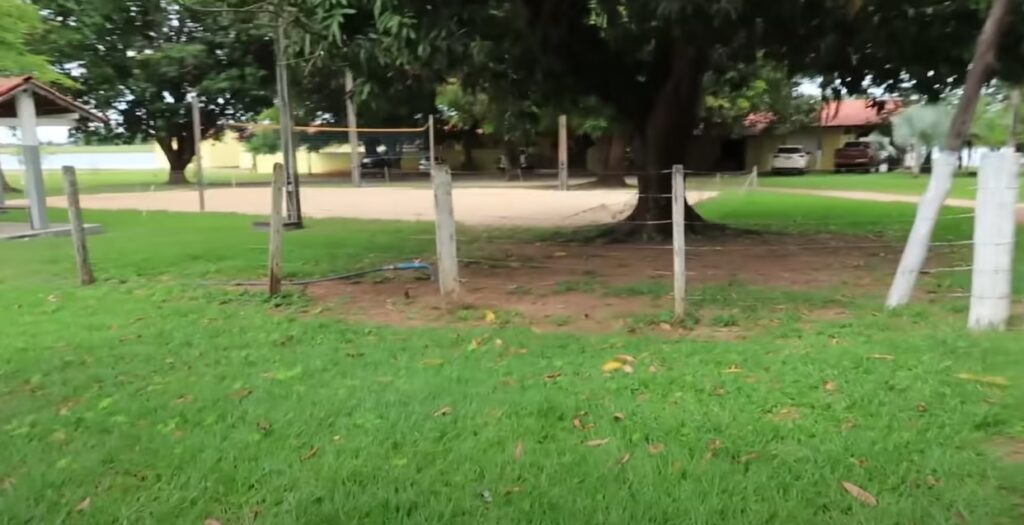
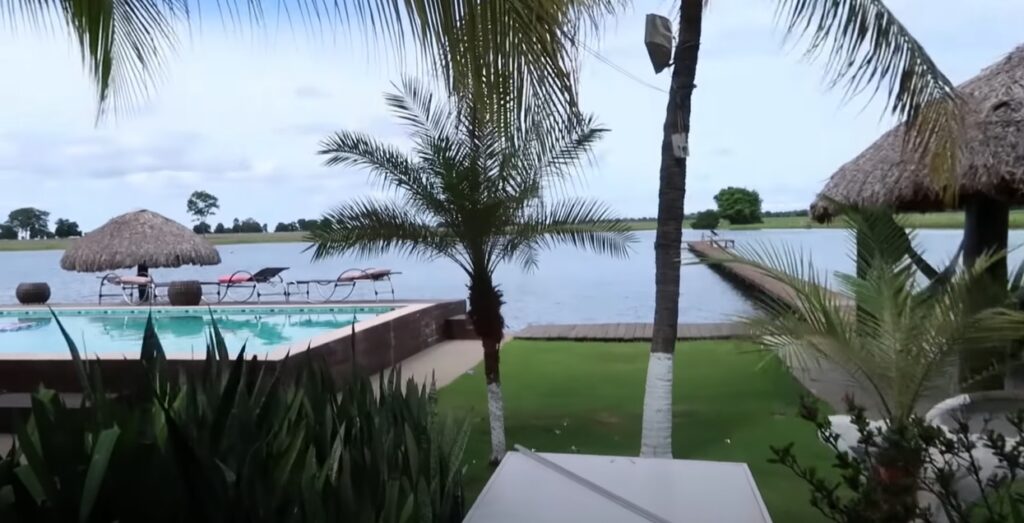
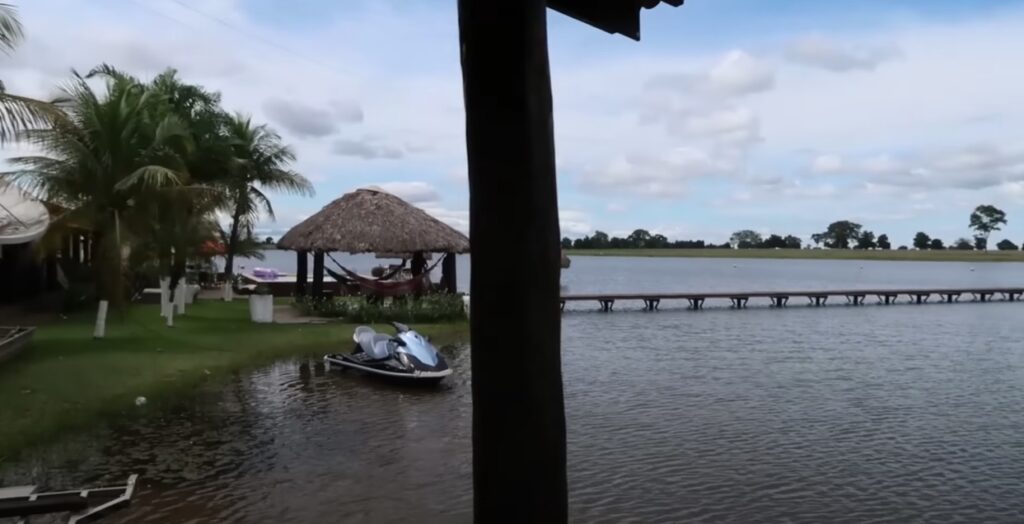
(YouTube reproduction)
In stark contrast to the luxury of the farm’s social spaces, the workers’ accommodations were found in a dire state. The house in which they stayed was dilapidated, lacked potable water, and had no proper sanitation. Inspectors reported that the workers slept on makeshift beds fashioned from wooden planks and pesticide barrels, while the quarters were infested with insects and bats, and reeked of a foul odor.
According to the Ministry of Labor, these conditions meet the legal definition of modern slavery in Brazil. The inspection, which took place in November 2023, only recently led to the conclusion of the administrative process, placing Leonardo on the government’s slave labor “dirty list.”
Leonardo’s legal team contends that the violations were discovered not on Talismã farm itself, but at Lakanka, a nearby plot also owned by the singer but leased out since 2022. According to his lawyer, the responsibility for hiring and maintaining the workers on the Lakanka farm, which produces soybeans and other grains, would lie with the tenant.
However, federal inspectors uncovered evidence suggesting that Leonardo was still responsible for maintaining certain aspects of the property, including preparing it for work, which ultimately led to his identification as the employer on the list.
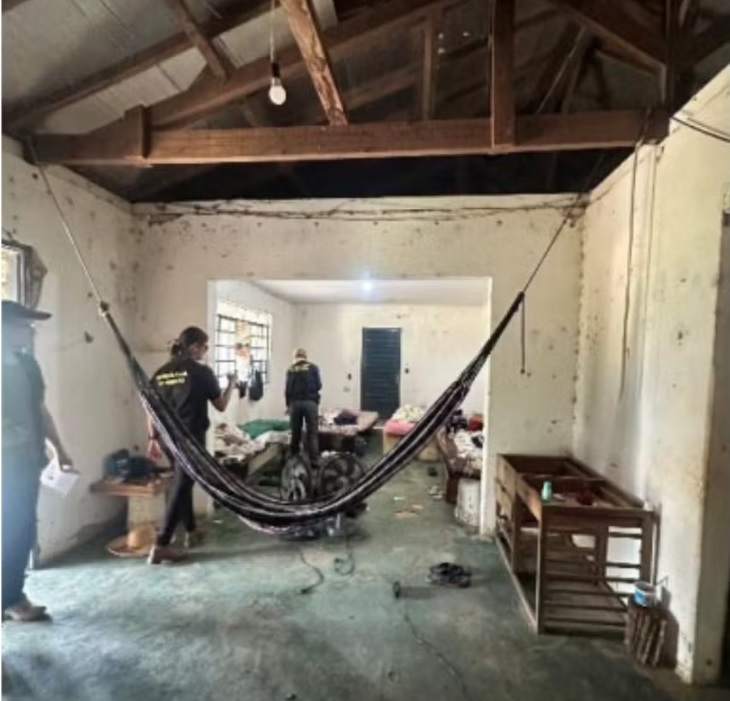
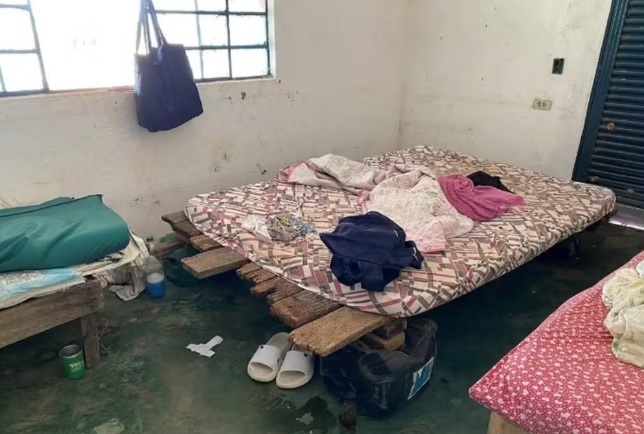
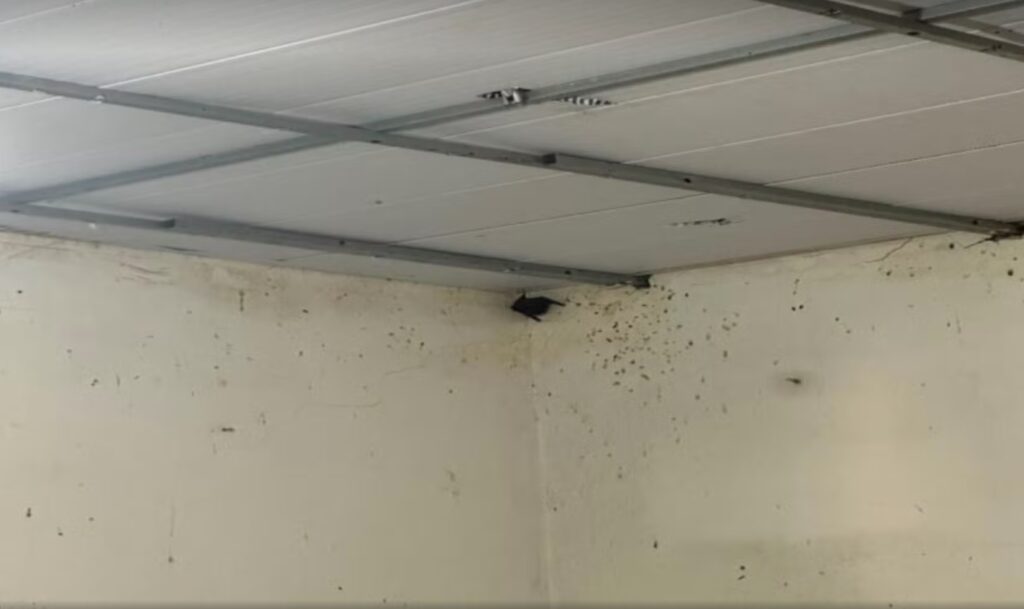
(photo: Brazilian Ministry of Labor)
In statements to labor officials, the rescued workers described deplorable living conditions, saying their accommodation had no shower, sink, or proper hygiene. One of them claimed to have fallen ill after the rain wet his bed, because the roof tiles did not completely cover the roof of the house. The group also revealed they had gone 12 days without a day off and were forced to work grueling hours, starting before 6:00 a.m., clearing stones and roots without proper safety equipment.
When talking to inspectors, the employee who claimed to have fallen ill because of the rain on his bed, said that he knew that the property belonged to the singer Leonardo. The farm’s manager testified that the singer had no direct involvement in the workers’ conditions and that Leonardo’s brother, Robson Alessandro Costa, oversaw operations. On the day of the inspection, Robson had reportedly inquired about the workers’ progress in clearing roots from the land.
After the scandal erupted in Brazil, Leonardo responded via a video posted on social media. He expressed shock and sorrow at the allegations and reiterated his legal team’s stance, attributing full responsibility to the tenant farmers.
“Everyone in Brazil knows me, knows who I am, and knows my integrity. I am completely against this kind of situation,” Leonardo said in the video.
On Wednesday, Leonardo’s lawyer confirmed that a settlement had been reached, awarding the six workers R$ 225,000 (USD $40,000) in compensation, paid by the singer himself. Additionally, Leonardo was fined R$ 94,000 (USD $17,000).
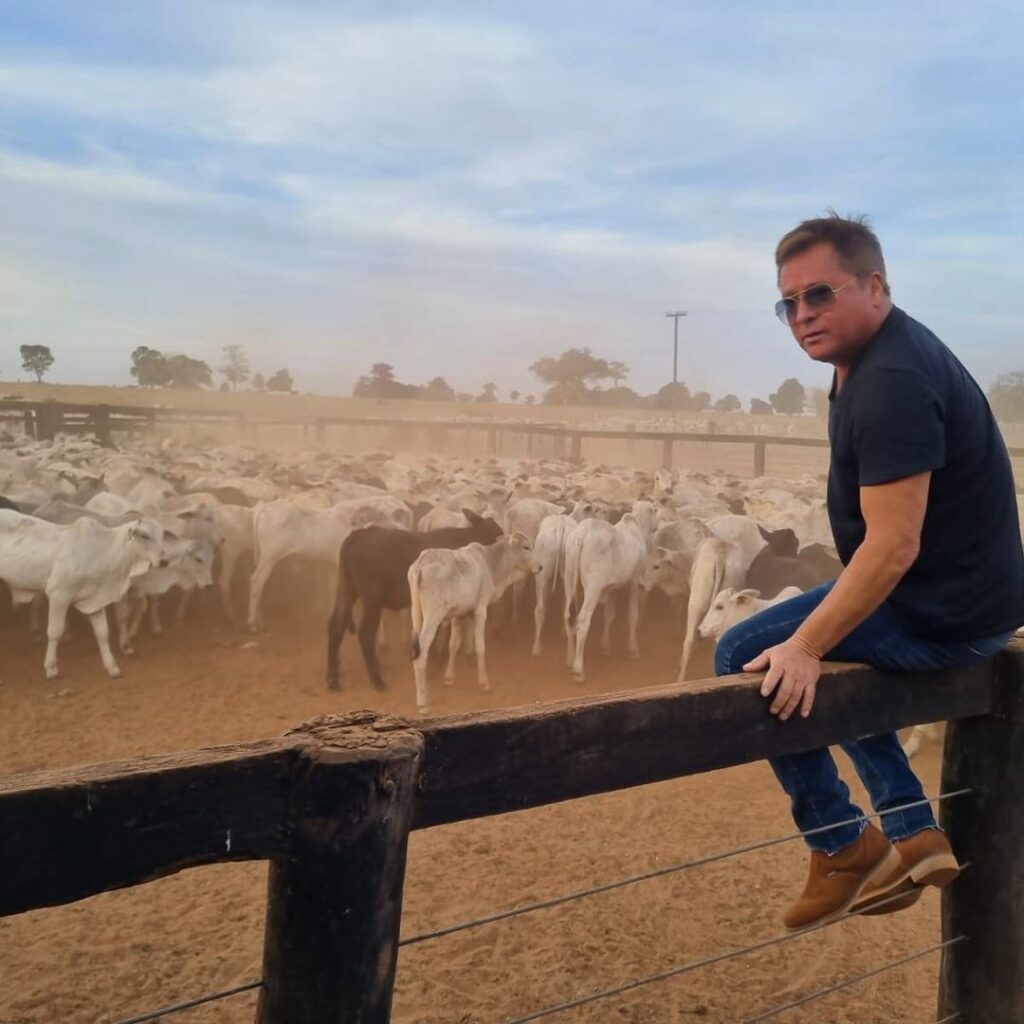
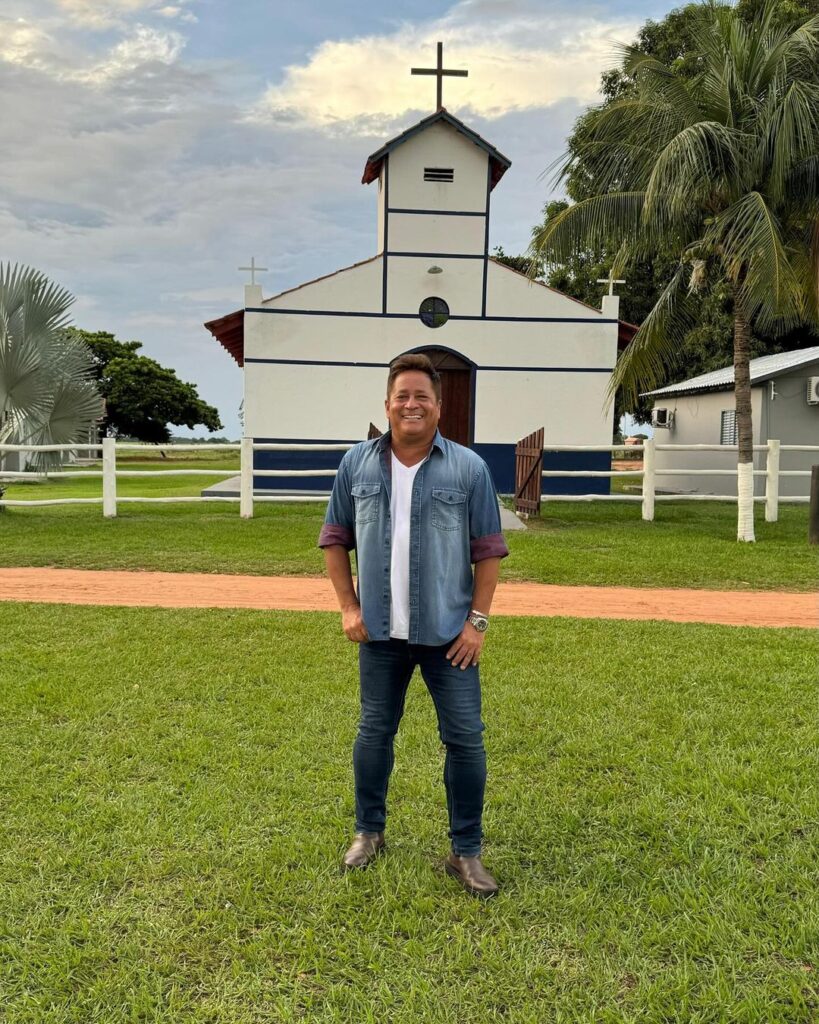
(Leonardo’s social media)
Leonardo first rose to fame in the 1980s as one half of a country music duo with his brother, Leandro. Born in the rural town of Goianésia, Goiás, the brothers came from a humble background and spent their youth working on their father’s tomato farm. Their big break came in the late 1980s, at a time when the country music genre was flourishing in Brazil. In 1989, they released one of their biggest hits, “Entre Tapas e Beijos,” which catapulted them to stardom.
The duo remained at the top of the charts throughout the 1990s until 1998, when Leandro tragically passed away at the age of 36 from a rare form of cancer known as Askin’s tumor. His death left a profound impact on the nation, with an estimated 250,000 people attending his funeral procession in Goiânia. Despite the devastating loss, Leonardo decided to continue his music career solo, maintaining his status as one of Brazil’s most sought-after performers to this day.
At the age of 61 and with a career spanning more than 40 years, he has sold more than 35 million records.






